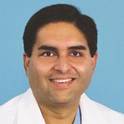Introduction:
Weight loss after bariatric surgery in obese patients reduces stroke risk; however, it is not known if similar benefits are maintained for all patients and whether atrial fibrillation (AF) plays a major role in stroke after weight loss.
Methods: Descriptive statistics were used for category and continuous variables and Cox regression analysis and predictors of stroke events were identified.
Results:Out of 847 morbidly obese patients [body mass index (BMI) ≥35 kg/m2] who underwent laparoscopic adjustable gastric banding (LAGB) and were followed for 11 years (mean age 44±11 years, mean BMI 49±8 kg/m2), incident stroke occurred in 44 (5.2%) patients. AF was present in eight patients (18%) at the time of LAGB who later developed stroke. New onset AF after LAGB developed in 38 (4.5%) patients over a median follow-up of 63.6 months, which was complicated by stroke in 5 patients. Of all patients who developed stroke, AF was documented in 13 patients (30%), while majority had no documented AF (n=31; 70%). On multivariate analysis, obstructive sleep apnea (HR=6.0; 95% CI 3.0- 12.1, p
Conclusions: In patients with morbid obesity who have undergone LAGB both non-AF and AF-related factors were involved in increasing the risk of stroke. Further investigation is warranted to define the relation between stroke with obstructive sleep apnea and Hispanic ethnicity.
Singh M, Dalmar A, Mirza M, et al. PO06-11: The Risk Of Stroke and Atrial Fibrillation After Bariatric Surgery in Patients With Morbid Obesity. Heart Rhythm. 2016; 13(5):S518-519.

Aurora Research Institute, Aurora Sinai/Aurora St. Luke's Medical Centers, Aurora Cardiovascular Services